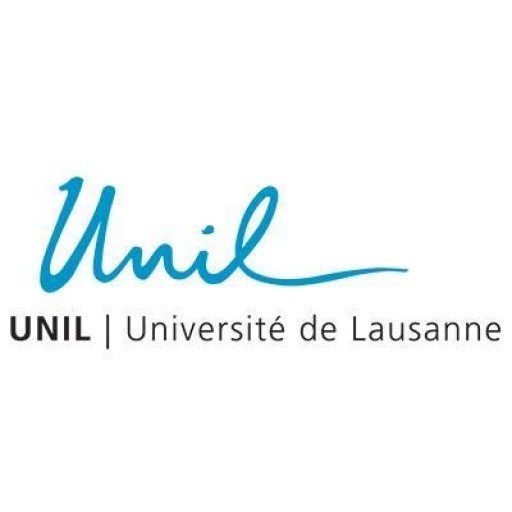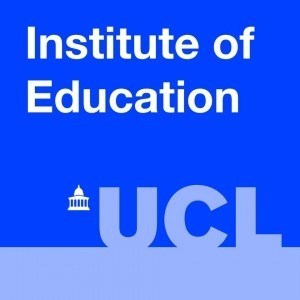Photos of university
The Classics program at the University of Notre Dame offers students an in-depth exploration of ancient civilizations, languages, literature, history, philosophy, and art from the Greco-Roman world. This comprehensive curriculum is designed to deepen understanding of the cultural foundations of Western civilization and develop critical analytical skills through the study of primary texts in Latin and Greek. Students in this program have the opportunity to engage with a wide range of classical sources, including epic poetry, philosophical treatises, historical accounts, and theatrical works, which foster a nuanced appreciation of ancient societies and their enduring influence. The program emphasizes close textual analysis, linguistic proficiency, and historical context, enabling students to interpret and appreciate the richness of classical antiquity. Notre Dame’s Classics department also encourages students to participate in interdisciplinary research, combining insights from archaeology, art history, and ancient languages. The program prepares students for diverse careers in education, law, public service, museum work, academia, and more, by cultivating skills in critical thinking, research, and effective communication. Students may choose to pursue minors or majors in Classics, and can benefit from various extracurricular activities such as study abroad programs in Italy and Greece, internships, and participation in student societies. The faculty members are distinguished scholars dedicated to mentoring students and advancing scholarship in their fields. Overall, the Classics program at Notre Dame aims to foster a deep intellectual engagement with the ancient world, inspiring students to explore its relevance and legacy in the modern era.
To earn the Masters in Classics, students must satisfactorily complete 36 class credits, a reading list, and several examinations. Students also have the option of writing a Masters Thesis.
- Coursework
- Reading List
- Exams
- Thesis
Coursework
Students will take 36 credits over 2 years in the MA program. The curriculum is well-defined, but includes room for adjustment based on students’ individual needs and interests. The details of any particular student’s coursework will depend on the Director of Graduate Studies in consultation with the Graduate Committee. Here's a list of our current courses.
The chart below shows the curriculum that will normally be offered, followed by specific examples for different specialties. Students can choose from several areas of emphasis, including language and literature, history, late antiquity, and philosophy. Years A and B will alternate based on the courses offered that year; some students will begin in Year A, others in Year B.
- General Curriculum
- Greek and Latin Literature
- History
- Late Antiquity
- Philosophy
General Curriculum
|
YEAR A |
YEAR B |
|
Topics and Methods in Classical Studies |
Ancient History seminar |
|
Survey of Latin Literature |
Survey of Greek Literature |
|
Advanced level language |
Advanced level language |
|
Advanced level language |
Advanced level language/history/elective |
|
Advanced level language |
Thesis (or advanced level language) |
|
Advanced level language/history/elective |
Thesis or Comprehensive Examination |
Emphasis in Greek and Latin Literature
|
YEAR A |
YEAR B |
|
Topics and Methods course |
Ancient History seminar |
|
Survey of Latin Literature |
Survey of Greek Literature |
|
Survey of Latin Christian Literature |
Greek author course |
|
Latin author course |
Latin author course |
|
Greek author course |
Latin author course |
|
Greek author course |
Thesis |
Emphasis in History
|
YEAR A |
YEAR B |
|
Topics and Methods course |
Ancient History seminar |
|
Survey of Latin Literature |
Archaeology elective |
|
Greek author course |
Latin author course |
|
Latin author course |
Greek author course |
|
Ancient History Seminar |
Elective course (early Medieval history) |
|
Greek author course |
Thesis |
Emphasis in Late Antiquity
|
YEAR A |
YEAR B |
|
Topics and Methods course |
Ancient History seminar |
|
Survey of Latin Literature |
Survey of Greek Literature |
|
Survey of Latin Christian Literature |
Latin author course |
|
Greek author course |
Latin author course |
|
Elective class (e.g. Patristics in Theology) |
Greek author course |
|
Survey of Medieval Literature |
Thesis |
Emphasis in Philosophy
|
YEAR A |
YEAR B |
|
Topics and Methods course |
Ancient History seminar |
|
Survey of Latin Literature |
Survey of Greek Literature |
|
Greek author class |
Greek author class |
|
Greek author class |
Latin author class |
|
Latin author class |
Philosophy Seminar |
|
Philosophy Seminar |
Thesis |
Reading List
In addition to completing all course requirements, students will be expected to read a list of texts in preparation for their examinations and for further study in the field of Classics. This reading list will be compiled with a view to the needs and interests of individual students by the Director of Graduate Studies and the Graduate Committee.
Exams
- Greek and Latin:
- Students will be required to take examinations in Greek and/or Latin translation at the beginning of their fourth semester, with the possibility of taking the exam again in the spring. The exam will be based on a standard reading list of core texts, though some adjustment may be made according to individual needs.
- Modern Languages:
- Since German, French and Italian are of major importance for research, all students will be required to demonstrate reading proficiency in one of these languages by passing an appropriate examination.
- Comprehensive Examination:
- Students choosing not to write a thesis will be required to take a comprehensive written and oral examination at the end of the fourth semester. Unlike the Greek and Latin examinations, the comprehensive examination will focus on broad topics pertaining to classical history, literature, and culture.
Thesis
With departmental permission, students will have the option of writing a final MA paper in a 3-credit or 6-credit version. Students intending to go on to PhD programs will be advised to exercise this option especially. Students writing a thesis will not be required to take the comprehensive examination.
- GRE General Test
- TOEFL or IELTS for non-native speakers of English
- A list of all texts read in the original Latin or Greek
- A writing sample of not more than 15 pages
- Curriculum vitae
- Statement of intent
- Three letters of recommendation
The University of Notre Dame offers a range of financial aid options to support students enrolled in its Classics undergraduate and graduate programs. Undergraduate students in Classics can apply for merit-based scholarships, which are awarded based on academic achievement, extracurricular engagement, and distinctive talents. Additionally, the university provides need-based financial aid to ensure that students from diverse economic backgrounds can pursue their studies. Students are encouraged to complete the Free Application for Federal Student Aid (FAFSA) to determine their eligibility for federal grants, loans, and work-study opportunities.
Notre Dame also offers endowed scholarships specific to Classics majors, which are awarded through the Office of Financial Aid in coordination with the Department of Classics. These scholarships may be available to students demonstrating exceptional academic performance, leadership qualities, or financial need. Graduate students pursuing advanced degrees in Classics, such as Master's or PhD programs, have access to fellowships, research assistantships, and teaching assistant positions that provide stipends and tuition waivers. These forms of financial support are often awarded on the basis of academic merit and research potential.
The university’s commitment to affordability is reflected in its comprehensive financial aid policies, aimed at meeting 100% of demonstrated financial need for admitted students. Notre Dame also offers payment plan options to help students manage tuition and fee payments over the course of the academic year. External funding sources, such as government loans and state grants, are also available to eligible students.
Students are encouraged to consult the Office of Financial Aid and the Department of Classics for detailed information on specific scholarships, eligibility criteria, application procedures, and deadlines. Overall, Notre Dame’s robust financial support system ensures that talented students can access high-quality Classics education without undue financial burden, fostering a diverse and vibrant academic community dedicated to the study of ancient languages, literature, history, and philosophy.
The University of Notre Dame offers a comprehensive Classics program designed to provide students with a deep understanding of the ancient Greek and Roman worlds. The program encompasses the study of Latin and Ancient Greek languages, allowing students to read original texts and develop proficiency in classical linguistics. Coursework includes ancient history, archaeology, literature, philosophy, and art, offering a multidisciplinary approach to understanding classical civilizations. Students have opportunities to participate in research projects, internships, and study abroad programs at leading institutions in Greece and Italy, enhancing their experiential learning and cultural appreciation. The program aims to develop critical thinking, analytical skills, and cultural literacy, preparing graduates for careers in education, research, museum work, archaeology, and other fields related to the humanities. Faculty members are renowned scholars dedicated to mentoring students and fostering a vibrant academic community. Resources include extensive libraries, digital archives, and collaborative research centers committed to advancing classical studies. The program emphasizes a close student-faculty relationship, personalized academic advising, and a supportive environment for intellectual growth. Graduates of the Classics program at Notre Dame have gone on to pursue advanced degrees, become educators, and contribute significantly to the understanding and preservation of ancient history and culture. Overall, the program offers a rigorous and enriching experience for students passionate about the classical world and its enduring influence on modern society.










